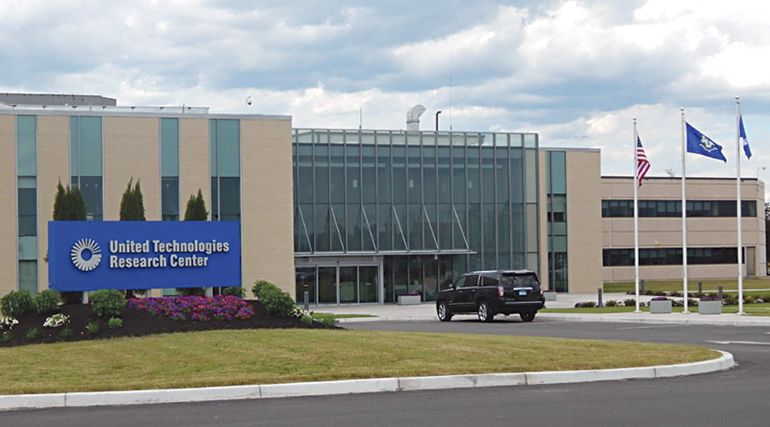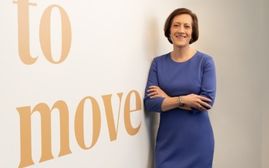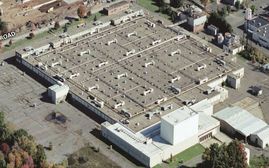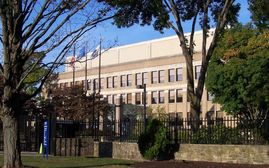Processing Your Payment
Please do not leave this page until complete. This can take a few moments.
- News
-
Editions
View Digital Editions
Biweekly Issues
- May 13, 2024
- April 29, 2024
- April 15, 2024
- April 1, 2024
- March 18, 2024
- March 4, 2024
- February 19, 2024
- February 5, 2024
- January 22, 2024
- + More
Special Editions
- Lists
- Viewpoints
- HBJ Events
- Business Calendar
- Custom Content
UTC/Raytheon merger completed, Mass.-based Raytheon Technologies Corp. established
 Photo | Contributed
Farmington’s United Technologies Corp. is among Connecticut’s top technology companies, according to the Connecticut Technology Council and Marcum.
Photo | Contributed
Farmington’s United Technologies Corp. is among Connecticut’s top technology companies, according to the Connecticut Technology Council and Marcum.
United Technologies Corp. and defense giant Raytheon completed their $180-billion mega-merger Friday, creating a Massachusetts-based company now known as Raytheon Technologies Corp.
The deal coincides with another major corporate shakeup in Connecticut, as Farmington-based elevator manufacturer Otis Worldwide Corp. and Florida-based Carrier Global Corp. -- both formerly UTC subsidiaries -- have begun trading as independent companies on the New York Stock Exchange.
Raytheon Technologies is now one of the largest aerospace and defense companies in the world with approximately $74 billion in revenue and 195,000 employees globally, including 60,000 engineers and scientists.
"Raytheon Technologies brings together two companies with combined strengths and capabilities that make us uniquely equipped to support our customers and partners during this unprecedented time," Raytheon Technologies CEO Greg Hayes said, referencing the current Covid-19 crisis.
Raytheon Technologies opened its inaugural trading day at $51 per share, while Otis started its first day on the NYSE trading at $43.95 per share.
The U.S. Department of Justice greenlit the merger last week, after instructing the companies to make some divestitures to stem anti-competitive concerns. The court required the companies to sell off Raytheon’s military airborne radios business and UTC’s military GPS and large space-based optical systems businesses.
The newly combined company will be based in Waltham, Mass., costing Connecticut one of its most prized corporate headquarters.
UTC had about 19,000 Connecticut employees as of September, according to HBJ’s Book of Lists. Worldwide, the company had more than 243,000 employees as of the end of 2019.
Raytheon Technologies now has four main business lines. They include:
- Collins Aerospace Systems specializes in aerostructures, avionics, interiors, mechanical systems, mission systems and power controls that serve customers across the commercial, regional, business aviation and military sectors. The segment is led by President Stephen Timm, headquartered in Charlotte, North Carolina, with approximately $26 billion in 2019 sales.
- Pratt & Whitney designs, manufactures and services the world’s most advanced aircraft engines and auxiliary power systems for commercial, military and business aircraft. The segment is led by President Chris Calio, headquartered in East Hartford, with approximately $21 billion in 2019 sales.
- Raytheon Intelligence & Space specializes in developing advanced sensors, training, and cyber and software solutions — delivering the disruptive technologies its customers need to succeed in any domain, against any challenge. The segment is led by President Roy Azevedo, headquartered in Arlington, Virginia, with approximately $15 billion in 2019 sales.
- Raytheon Missiles & Defense provides the industry’s most advanced end-to-end solutions to detect, track and engage threats. The segment is led by President Wes Kremer, headquartered in Tucson, Arizona, with approximately $16 billion in 2019 sales.
The spin offs
A longtime industrial conglomerate, UTC has made a number of deals in recent years that have dramatically changed its business. UTC’s board of directors on March 13 approved the spinoffs of Otis Elevator and Carrier Corp.
As part of the spinoff, UTC shareholders will receive one share of Carrier common stock and half a share of Otis common stock for each share of UTC common stock they held on or before March 19, according to UTC.
On the morning of Farmington-based Otis' first day trading on the NYSE, CEO Judy Marks expressed confidence in the elevator manufacturer as a stand-alone company.
"Otis continues to be well-positioned for sustained, long-term growth as our business model brings recurring revenue even in times of economic headwinds," Marks said.
Otis reported sales of $13.1 billion in 2019. The company continues to monitor the evolving effect of COVID-19 on its operations and 2020 financial outlook. An update on the impact will be provided with first quarter earnings in early May.
Carrier President and CEO Dave Gitlin touted the HVAC manufacturer's ability to help with the coronavirus crisis.
"Against the backdrop of unprecedented global uncertainty, Carrier and its employees remain focused and continue to solve critical challenges – from improving indoor air quality, protecting the world's food and pharmaceutical supply and keeping people safe and secure," Gitlin said.
Related Content

2022 Giving Guide
This special edition informs and connects businesses with nonprofit organizations that are aligned with what they care about. Each nonprofit profile provides a crisp snapshot of the organization’s mission, goals, area of service, giving and volunteer opportunities and board leadership.
Learn more
Subscribe
Hartford Business Journal provides the top coverage of news, trends, data, politics and personalities of the area’s business community. Get the news and information you need from the award-winning writers at HBJ. Don’t miss out - subscribe today.
Subscribe
2024 Book of Lists
Delivering Vital Marketplace Content and Context to Senior Decision Makers Throughout Greater Hartford and the State ... All Year Long!
Read Here-
2022 Giving Guide
This special edition informs and connects businesses with nonprofit organizations that are aligned with what they care about. Each nonprofit profile provides a crisp snapshot of the organization’s mission, goals, area of service, giving and volunteer opportunities and board leadership.
-
Subscribe
Hartford Business Journal provides the top coverage of news, trends, data, politics and personalities of the area’s business community. Get the news and information you need from the award-winning writers at HBJ. Don’t miss out - subscribe today.
-
2024 Book of Lists
Delivering Vital Marketplace Content and Context to Senior Decision Makers Throughout Greater Hartford and the State ... All Year Long!
ABOUT
ADVERTISE
NEW ENGLAND BUSINESS MEDIA SITES
No articles left
Get access now
In order to use this feature, we need some information from you. You can also login or register for a free account.
By clicking submit you are agreeing to our cookie usage and Privacy Policy
Already have an account? Login
Already have an account? Login
Want to create an account? Register
Get access now
In order to use this feature, we need some information from you. You can also login or register for a free account.
By clicking submit you are agreeing to our cookie usage and Privacy Policy
Already have an account? Login
Already have an account? Login
Want to create an account? Register










0 Comments